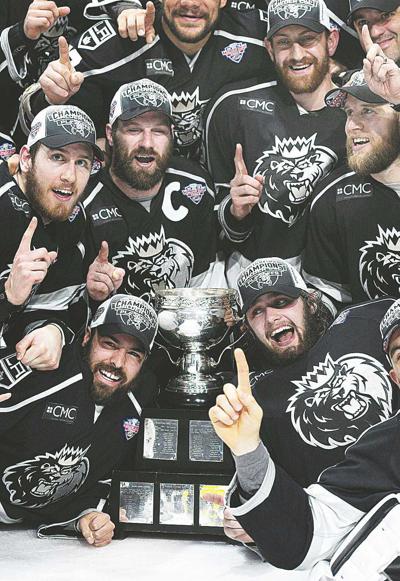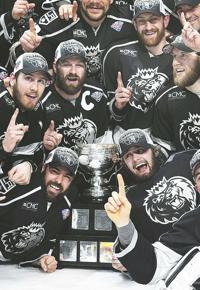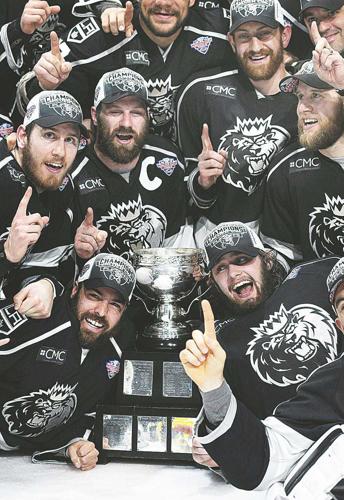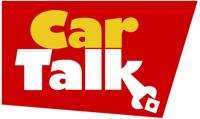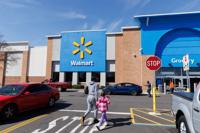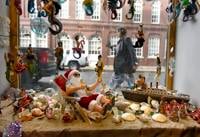The Manchester Monarchs announced Wednesday that they will cease operations, ending the franchise’s 18-year run in the Queen City and leaving both a hockey and entertainment void in the state.
With the Monarchs gone, the New Hampshire Fisher Cats, Double-A affiliate of the Toronto Blue Jays, are the lone professional sports franchise in the state.
“The Monarchs are a good organization and a great community partner,” Fisher Cats President Mike Ramshaw said. “They’ve been a staple around here for the past 18 years…. I’m sure the community and community partners are going to miss having that additional family entertainment year-round — not only for the residents of the city of Manchester but also the state of New Hampshire.”
The Monarchs led the AHL in attendance for three years during a four-year stretch beginning with their 2002-03 season and averaged a franchise-best 9,140 fans per game the following season. Manchester struggled to attract fans to SNHU Arena over its final five seasons, however. The Monarchs averaged 5,621 fans in their final AHL season, in which they won the Calder Cup — their lone league title in franchise history.
After the NHL-parent club Los Angeles Kings moved their AHL franchise to Ontario, Calif., in 2015, the Monarchs played four seasons in the lower-level ECHL. Manchester saw its average attendance dip each ECHL season — 4,622 in 2015-16, 3,580 in 2016-17, 2,793 in 2017-18 and 2,458 in 2018-19 — despite qualifying for the playoffs each year.
The Monarchs went 39-29-2-2 this past season, reaching the ECHL North Division Finals. Their final home game — a 2-1 overtime victory over the Newfoundland Growlers on May 3 in Game 5 of the North Division Finals — was played at The Rinks at Exeter because SNHU Arena was hosting Monster Jam that weekend.
Boston-based PPI Sports LLC, which bought the Monarchs from the Kings in 2016, put the franchise up for sale in January. Monarchs CEO Brian Cheek said there were four or five parties interested in buying the team, with one group going “pretty far through the process.” The ownership group also talked to the Kings about possibly buying back their ECHL affiliate, but they were not interested.
After discussions with the city, state, arena, potential buyers and the Kings, Cheek said it became clear that ECHL hockey was no longer viable in Manchester.
Cheek thanked the Monarchs’ fans and community partners during a phone interview Wednesday afternoon and said the franchise received numerous notes of support in the first several hours following the announcement.
“It’s good to see people are going to miss it,” Cheek said. “It’s unfortunate but at the same time, it’s nice to know people enjoyed what we provided.”
Ryan Frew, who is the general manager and coach of the tuition-free New Hampshire Junior Monarchs United States Premier Hockey League team, said Wednesday marked a sad day for hockey in the area. Despite sharing the same name and logo, the Junior Monarchs program runs independently of the Manchester franchise but the two did have a relationship with each other. For example, the Junior Monarchs sometimes provided Manchester with ice time at their home rink, Tri-Town Ice Arena in Hooksett, for practices and Manchester invited the Junior Monarchs’ youth teams to SNHU Arena to watch home games.
“Anything we could do to help them out, we did, and they did the same in return for us,” Frew said. “We’re sad for the people we know over there. We feel terrible for the employees — from the coaching staff to guys selling peanuts and beers. It’s not a good situation for anybody.”
Trinity of Manchester boys’ hockey coach Mike Connell hopes minor-league hockey will eventually return to Manchester. Connell went to games at the then-Verizon Wireless Arena during the team’s inaugural AHL season (2001-02), during which it averaged 8,199 fans per game.
“I remember going to games their first year — it was packed,” Connell said. “The place was rocking. It shows people were craving something like that.”
Connell went to some of Manchester’s ECHL games but said the feeling in the arena was not the same as he experienced during the franchise’s AHL heyday.
“When you go to a game like that, you want the energy of the crowd,” Connell said. “You’re going for the experience of it. You can watch Bruins games all day long on TV but being in the building, you want to feel that excitement. That was kind of gone.”


